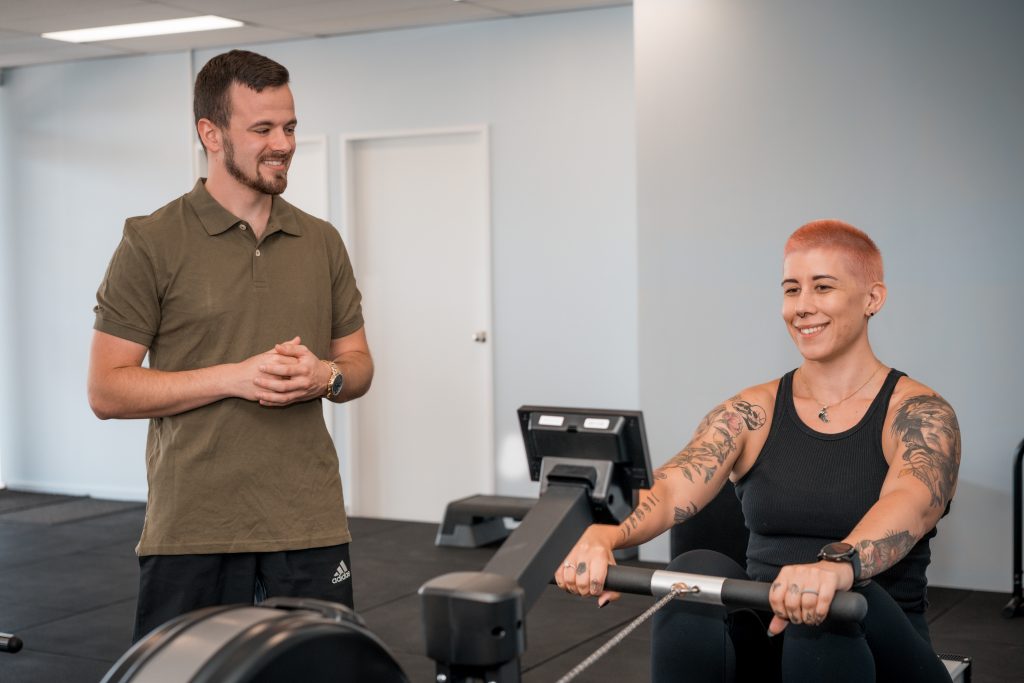It’s a common question we hear – what’s the difference between Exercise Physiology and Personal Training?
Everyone knows what a Personal Trainer can do. They can provide exercise programs to the general population to assist with muscle building, weight loss and improving their health through exercise. But did you know that Exercise Physiologists can do the same? Exercise Physiologists also specialise in injury management, chronic diseases, muscle and joint pain and problems, diabetes, pre and post-natal exercises and more. Exercise Physiologists can work with clients who have no medical conditions, where a Personal Trainer cannot.
Exercise Physiologists are university qualified and have extensive training in providing safe and tailored exercise programs for everyone. Exercise Physiologists spend 4 years studying the human body and how it responds to exercise. They can work with all kinds of people and are different from personal trainers and other health professionals due to their extensive knowledge, skills and experience in exercise delivery and understanding of complex and chronic health conditions. Exercise Physiologists are Allied Health Providers and work closely with other Allied Health Providers to provide a holistic view.
Personal Trainers complete a minimum Cert 4 in fitness and cover basic training principles for the healthy adult population, sometimes in as little as 6 weeks and without any practical training. An Exercise Physiologist not only studies for 4 years but has 500 hours of practical hours under their belt before they graduate. Majority of Exercise Physiologists work out of a clinic or gymnasium, but you will also find them in Hospitals, Rehabilitation Centres and working with elite athletes and sports clubs.
Exercise Physiologists are required to continue and therefore, their exercise knowledge continues to grow and expand throughout their career. They are required to obtain at least 20 Continuing Professional Development points per year and meet the high standards of their governing body, Exercise and Sports Science Australia (ESSA) to be Accredited. Exercise Physiologists are not allowed to practice without this accreditation and are held to a high standard. Personal Trainers are only required to achieve half the amount of Continuing Professional Development points and have a significantly longer period to complete this.
Exercise Physiologists do not require a referral for private consultations and are also eligible to register with Medicare Australia, the Department of Veterans’ Affairs, National Disability Insurance Scheme and WorkCover. Exercise physiologists are claimable through your private health fund as well! You will need to check your coverage before your start if you wish to claim.
Do your own research, but an Exercise Physiologist charges the same amount for a personal training session as a Personal Trainer does. So, what is stopping you from training with our Exercise Physiologists at Assure Rehab?



